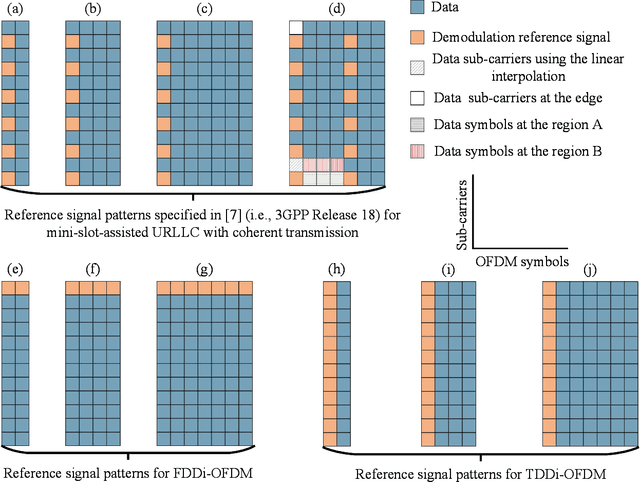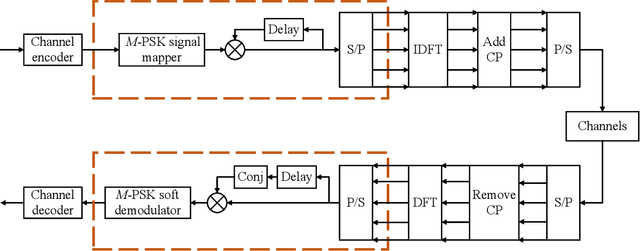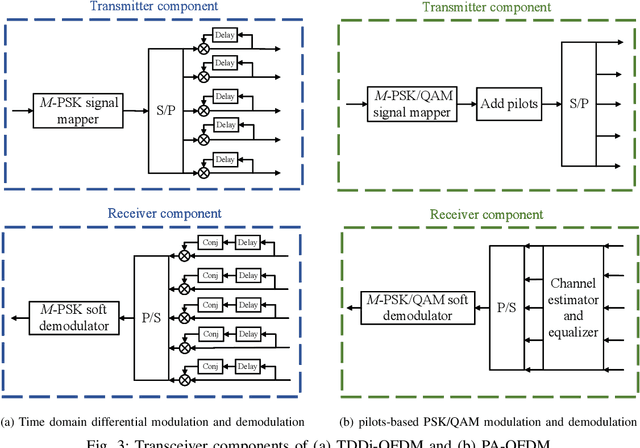Mini-Slot-Assisted Short Packet URLLC:Differential or Coherent Detection?
Paper and Code
Aug 26, 2024



One of the primary challenges in short packet ultra-reliable and low-latency communications (URLLC) is to achieve reliable channel estimation and data detection while minimizing the impact on latency performance. Given the small packet size in mini-slot-assisted URLLC, relying solely on pilot-based coherent detection is almost impossible to meet the seemingly contradictory requirements of high channel estimation accuracy, high reliability, low training overhead, and low latency. In this paper, we explore differential modulation both in the frequency domain and in the time domain, and propose adopting an adaptive approach that integrates both differential and coherent detection to achieve mini-slot-assisted short packet URLLC, striking a balance among training overhead, system performance, and computational complexity. Specifically, differential (especially in the frequency domain) and coherent detection schemes can be dynamically activated based on application scenarios, channel statistics, information payloads, mini-slot deployment options, and service requirements. Furthermore, we derive the block error rate (BLER) for pilot-based, frequency domain, and time domain differential OFDM using non-asymptotic information-theoretic bounds. Simulation results validate the feasibility and effectiveness of adaptive differential and coherent detection.
 Add to Chrome
Add to Chrome Add to Firefox
Add to Firefox Add to Edge
Add to Edge